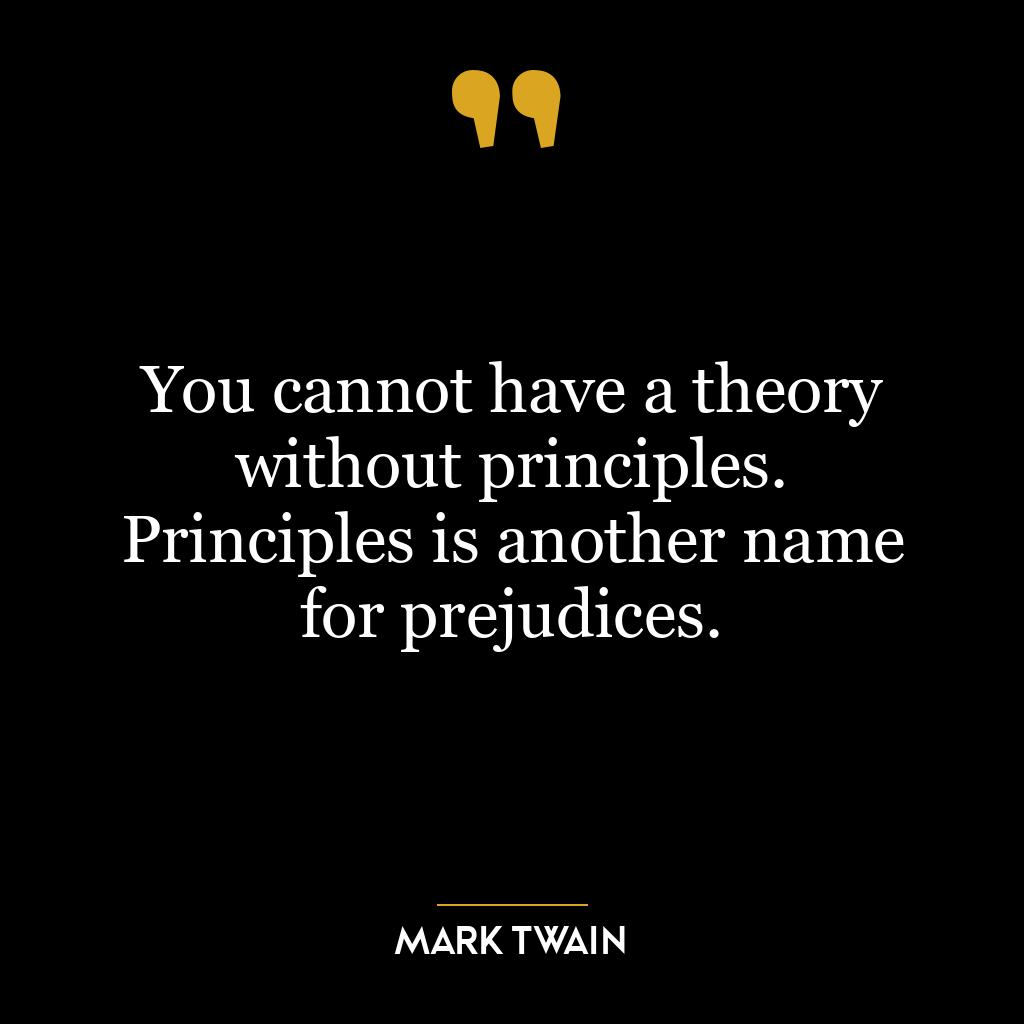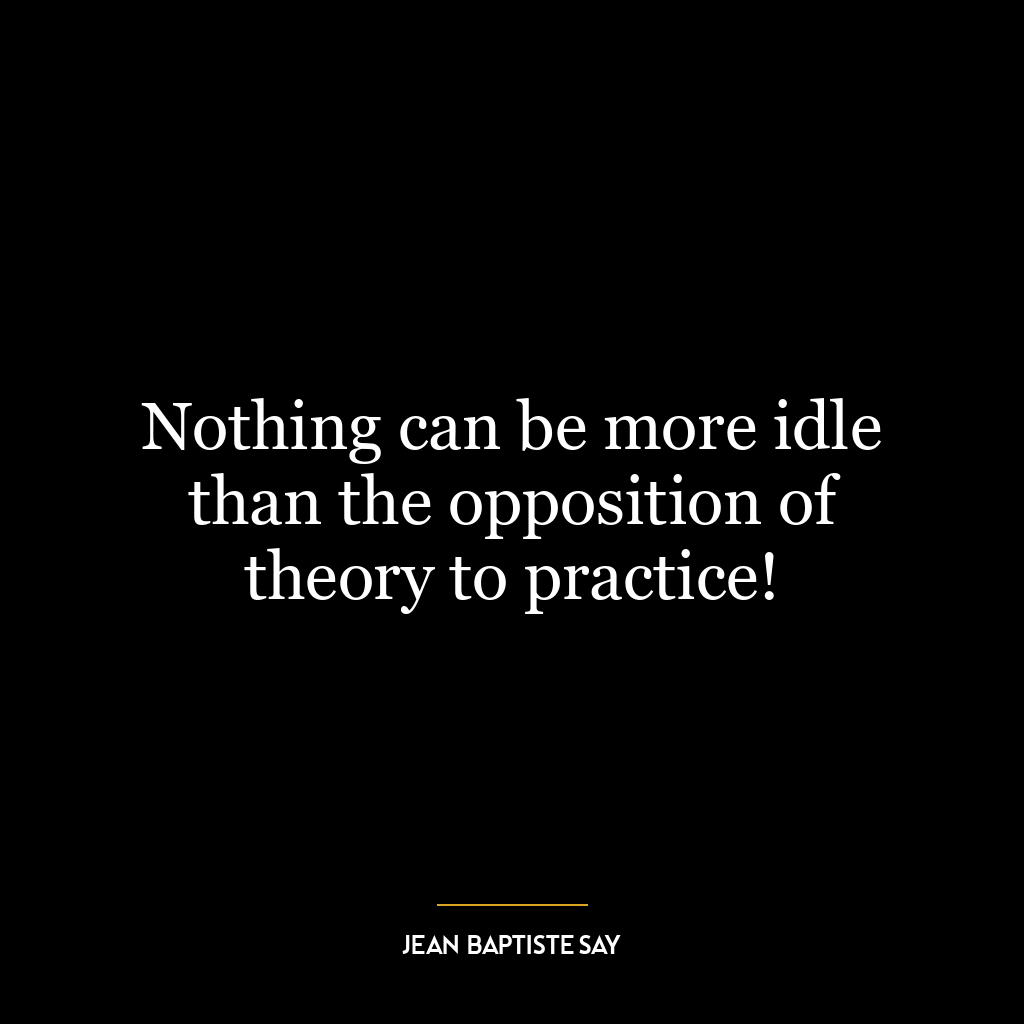You cannot have a theory without principles. Principles is another name for prejudices.
This quote implies that every theory, no matter how objective it may seem, is built upon certain principles or assumptions. These principles, in turn, are influenced by our personal beliefs, biases, or prejudices. Hence, Twain is suggesting that there is no such thing as pure objectivity; every theory is inevitably colored by the subjective views of its creator.
The first part of the quote, “You cannot have a theory without principles,” underlines the importance of principles in shaping theories. Principles are the fundamental truths or propositions that serve as the foundations for a system of belief, behavior, or reasoning. They are the bedrock upon which theories are built. Without principles, a theory would lack substance and direction.
The second part of the quote, “Principles is another name for prejudices,” introduces a provocative idea. Prejudices often carry a negative connotation, referring to preconceived opinions that are not based on reason or actual experience. However, Twain seems to suggest that prejudices, in the form of personal beliefs or biases, are not always detrimental but rather inevitable and intrinsic to the process of theory formation.
Applying this idea to today’s world, we can see that many of the theories or ideas that shape our societies, political systems, and even scientific understanding are based on certain principles or assumptions. These principles, in turn, are shaped by the cultural, social, or personal biases of the people who formulated them. For example, economic theories are often based on assumptions about human behavior, which can be influenced by the economist’s own beliefs and prejudices.
In terms of personal development, this quote can serve as a reminder to be aware of our own biases and how they might be influencing our beliefs and decisions. It encourages us to question the principles that underlie our own theories about the world and to recognize that these principles are not absolute truths but rather subjective interpretations. By doing so, we can strive to develop more balanced and nuanced views.








